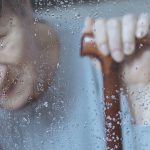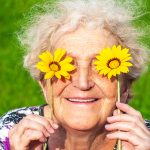Partying belongs in the teen years according to popular belief, but in terms of metabolism, older adults might be better equipped to stay up until the wee hours. A new study out of the University of Surrey in England found that the time you spend sleeping decreases with age naturally, even if you stay in bed the same amount of time as you did when younger. Although numerous earlier studies also found that advancing age correlates to less sleep, most of those studies blamed the sleep reduction on age-related problems like restless leg syndrome, health issues, and sleep apnea. This study, however, found that the decrease in sleep that comes with advancing years isn’t necessarily a result of dysfunction: it’s a normal part of aging.
“Even the researchers admit they were surprised by the findings,” said Dr. Dave Hnida, medical editor of the journal Sleep, which just published the findings. “We always thought the older you got, the more sleep you needed to rejuvenate.”
The study involved 110 subjects who fell into three distinct age categories, young (aged 20 to 30), middle-aged (40 to 50), and older (66 to 83 years old). All the subjects stayed in bed for eight hours, three nights running, and although none of them slept the entire time, the results showed clear differences from one age group to the next. Those in the youngest group slept an average of seven hours and 15 minutes. The middle-aged group snoozed for an average of six hours and 55 minutes, and members of the oldest group averaged six hours and 30 minutes. In other words, the youngest subjects slept 43 minutes more than the oldest.
The researchers did find that older subjects took longer to doze off than their more youthful counterparts. The youngest group entered sleep in an average of eight minutes after setting head on pillow, compared to almost twice that (15 minutes) for the 65-year-plus subjects. And, the rhythm of the sleep experience varied by age. While the youngest subjects woke up for only 21 minutes after first falling asleep, the oldest group spent 71 minutes lying awake in bed. These two factors — that older people have a harder time falling asleep and staying asleep — might account for the older person’s perception that he or she has insomnia in spite of getting enough sleep. In other words, it’s a matter of perception, of expecting the geography of sleep to look the same in advanced years as it did in youth, although in fact normal sleep patterns do seem to change with age.
In fact, according to a study back in 2003, waking up in the middle of the night is altogether normal. Dr. Thomas Wehr of the National Institute of Mental Health followed the sleep of 15 young volunteers who simulated prehistoric sleep patterns — sleeping from sundown to sunrise — and discovered that virtually all of them slept in two distinct episodes during the night with an awake bout of several hours in the middle. Dr. Wehr says that even in ancient times, people slept in episodes rather than straight through the night. “There are historical records of people sleeping in two bouts at night,” Wehr explains. He says the first bout is “dead sleep,” and the second, lighter bout, is “morning sleep.” This pattern holds true for young people as well as older individuals, although older people can be yanked out of sleep by disturbances more easily.
That’s because aging brings less time spent in deep, slow-wave sleep — the “dead” phase where nothing wakes you. In the current study, this held true, and yet, the older subjects displayed less daytime sleepiness than the younger folks. Dr. Hnida explains, “The reason older folks need less sleep is because they get a better quality of sleep. That means the older the brain, the more effectively it cycles through the stages of sleep.” If he’s right, it’s an interesting twist on the commonly held belief that staying in deep, delta-wave sleep is what restores the body. Rather, Dr. Hnida says, it’s cycling through all the stages of sleep that’s the key.
Given that over half of all elderly people complain of insomnia, these findings shed light that may help at least some older people accept their reduced ability to sleep as normal, as long as they don’t experience daytime sleepiness — and that’s the bottom line. One of the researchers, Dr. Derk-Jan Dijk, commented, “Our findings reaffirm the theory that it is not normal for older people to be sleepy during the daytime. Whether you are young or old, if you are sleepy during the day you either don’t get enough sleep or you may suffer from a sleep disorder.” The older subjects in the study who slept less than the younger subjects were not sleepy during the day.
Still, it is true, even after reframing, that aging does bring real sleep issues to many who slept just fine when younger. The causes range from hormonal changes after menopause in women, to medical issues that cause pain and discomfort, to depression, anxiety and dementia, and to the side effects of medications — a huge factor. Since lack of sleep contributes to rapid aging, you need to sleep enough for your body to recuperate, no matter your age. And as I’ve written before, drinking caffeine-laden sodas and coffees, eating sweets, and eating a poorly balanced diet all create sleeplessness. So do many pharmaceuticals. Not getting enough exercise also throws the metabolism off and makes sleep difficult. Instituting a healthy regimen that includes good diet and exercise and that avoids pharmaceuticals to the extent possible will help you to sleep tight whether you’re 20 or pushing 100.
:hc
—
To learn more about how to naturally reverse aging, visit our Anti-Aging Program for step-by-step instructions.












I sleep about 7-8 hours
I sleep about 7-8 hours nightly. Yet am tired during the day!!
I am 83 and healthy.
I can sleep anytime day or
I can sleep anytime day or night. Most of time sleep 10PM till 8:15 AM when my dog who sleeps with me wakes me up Also
at night around 2AM she wakes me for 1/2 hour to get her back rubbed Day time have 2 hour morning and afternoon have naps with dog.